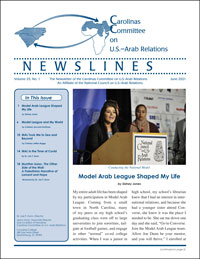On September 21, 2021, the National Council convened an online program exploring “How to Grow U.S.-GCC Trade, Economic Cooperation, and Investment Opportunities?”
Joining the program were:
Featured Specialists:
- Mr. H. Delano Roosevelt, U.S.-Saudi Business Council President and CEO; Former Middle East Council of American Chambers of Commerce Chairman.
- Mr. Christopher Johnson, Middle East Council of American Chambers of Commerce Chairman; Attorney based in Riyadh, Saudi Arabia; KKR Saudi Limited Chairman.
- Mr. Robert Hager, American Chamber of Commerce in Qatar Founding Chairman; Attorney based in Doha, Qatar.
- Mr. Steve Lutes, U.S. Chamber of Commerce Vice President of Middle East Affairs.
- Ms. Sarah Karle, U.S. Chamber of Commerce Director of Middle East Affairs.
- Ms. Liz Beneski, American Chamber of Commerce in Abu Dhabi Chief Executive Director.
- Ms. Mary McGinnis, American Chamber of Commerce in Bahrain Executive Director.
- Mr. Fred Shuaibi, American Business Council of Kuwait Board Member.
Moderator:
- Mr. Mike Jones, Middle East Council of American Chambers of Commerce Washington, D.C. Representative; Capitol Capital Group, LLC Founding President.
Welcome and Context Provider:
- Dr. John Duke Anthony, National Council on U.S.-Arab Relations Founding President and CEO.
Audio and video recordings of the program are available above and below, and on YouTube, Apple Podcasts, Spotify, and elsewhere.
“How to Grow U.S.-GCC Trade, Economic Cooperation, and Investment Opportunities?” podcast (.mp3)



You must be logged in to post a comment.